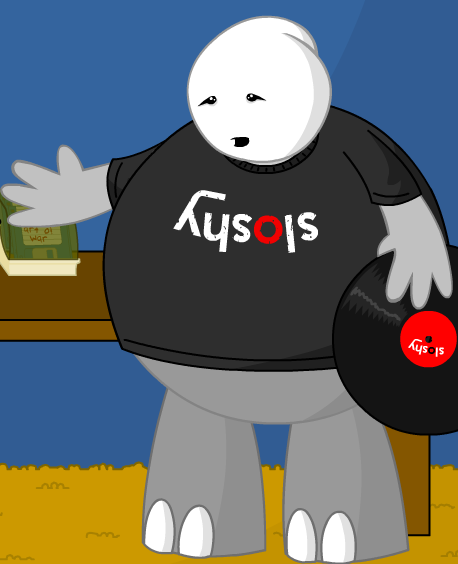Hello all, I am a 39M whose wife (42F) was just diagnosed with ADHD. We’ve had a suspicion ever since our 6 year old was diagnosed and we started doing a deep dive into it and realizing a lot of the symptoms fit her. Even some of the memes from this community helped her to start looking into it herself. She is relieved to find out she’s not just ‘a disorganized slob’, that there is a reason for her struggles, but now the real work begins.
My question is: what do you wish your partner would have known/done for you? I want to be as supportive as possible and make sure I’m not contributing to any negative feelings, and help her find ways to build coping mechanisms. Just looking for any advice!


I’m so glad some of my ideas were useful! Let me see what I can add here. Of course everyone is different, and since she’s inattentive type and I’m combined type some things may vary for her but I’m sure there is some overlap in our experiences.
So this part gave me some ideas:
I went through a similar phase (seeming to like cluttered spaces) but I eventually realized it’s not the clutter that I want, I actually hate the clutter. It’s having the items I need visible and easily within reach. You could try looking at where she’s regularly leaving certain items, and try to find a better way to organize them close to where she’s leaving them. For starters, something I’ve been doing is to sort things into bins I can just throw things into. I get lots of cheap bins from Dollar Tree for this. For example, just a bin for makeup stuff, a visible utensil holder for kitchen utensils I use frequently that stays on the counter, a bin for just the skin care stuff I use at night and a different one for skin care stuff I use in the morning, etc. A bin I can just yeet things into without thinking too much. Even if the way it’s sorted seems somewhat irrational, having an easy way to sort things helps and I don’t lose items as much. As another example, when I’m folding laundry, I can’t usually do it in one go, and I’ll throw smaller items (socks, washcloths, etc) onto my dresser to fold. I lose interest in folding, and end up with a pile of these items all over my dresser. So my solution is to put a bin on my dresser I can throw them into, and even though it’s a bit messier than I’d like, it’s realistic to my usual behavior and minimizes the mess. Being realistic with organizing and trying not to blame myself for not organizing the same way most people do has helped minimize the clutter a bit. Do most people have a sock bin on their dresser? Absolutely not. But ADHD is a type of neurodivergence, we don’t think or behave like the average person. Instead of trying to fight a behavior, you learn to work within it, even if it’s a little weird to others. I think of it like an accessibility thing. People who use wheelchairs have certain equipment around their homes to make things easier for the way they need to live. I have weird bins because my brain is chaotic. Sorta similar, but with a mental disorder instead of a physical one.
So my suggestion would be to look at the behaviors she is the most consistent with and try to make those as intuitive as possible without having to search for items. I think of my brain as having a health bar, so there is a limit to how much I can handle in a day and minimizing small hits (making decisions and looking for lost things especially use my HP) will keep my HP from going into the red. If I have to open cabinets (weirdly distracting for some reason lol) or go to another room for items I need for a task I tend to lose focus and forget what I was trying to do. Those are hits to my HP. Keeping needed items visible and within reach helps a lot and I can get more done.
This is very important! I feel like I’m being judged and criticized all the time for things I’m trying my best to control but can’t. Especially at work. Having a supportive partner who makes an effort to understand how I think and feel, even if they’re not always perfect at it, is more helpful than you might realize!
This way of thinking is great! Not being judgemental and being kind to yourself helps a lot. This is a good start, but I do have a few notes on the techniques here, just based on how I feel personally. Since she has executive dysfunction too, maybe this will apply. So, my partner has tried a similar thing with me, and sometimes it locks me up if he says “just pick something and don’t worry about the other stuff.” The “just pick something” messes me up a bit, now I’m thinking about all of the things I could do and I can’t pick one because maybe the other things are more important? He said the word “worry,” should I be worrying though? Which task is most important? If I start doing one of the things, all I can think about is “should I be doing the other thing?” And this leads to me doing nothing at all. I would love to not feel guilty about the things I’m not doing, but it’s not really a rational feeling and I can’t switch it off even if I think it’s silly.
When I’m in this kind of situation, it helps if my partner is what I would call gently pushy. By this I mean, don’t try to force her to do things, but help her decide based on what you think would be best for her and would make her happiest, and facilitate her decision. This is not telling her what to do, it’s helping her reach the decision she would want to make if she could think straight. Keep things very simple and make more statements than questions. Instead of “do you think you might want to do X?” which is going to cause me to start thinking “do I want to do X? Should I do X?” you could try “So you said you were thinking about doing X, I think that would be a good idea. Let’s do that!” Doing that will help me focus on one task and be more excited about that task instead of thinking about the things I’m not doing, which is a lot of the problem with executive dysfunction for me. Not feeling confident about my decisions makes it hard to focus on what I decided on.
So to expand on something I mentioned in the last comment, let’s say I’ve told him I want to do a lot of things and I can’t decide on one, so he might think “she’d probably feel better if she got some painting done.” So he’ll say “I’d love to see you do some painting” and he’ll help me set up my painting stuff. Having it all ready in front of me makes it so much easier to get started and if he doesn’t mention the other options, they’re less likely to get stuck in my head and trip me up when I’m trying to focus on the task I’ve chosen.
That’s completely understandable, you’re human too and your issues are important too, even if hers are more severe at times. What matters is that you’re making an effort to learn and communicate better. You’re supporting each other and listening to each other, and it sounds like you’re doing a great job with those things! Not everything you do will be the perfect thing every time, and that’s okay. We’re not trying to be perfect here, just to function better overall. Make sure you take care of yourself and your mental health too!
I really hope she decides to try counseling and/or meds. If she’s reluctant to try medication, I have a few supplements that help me, such as L-tyrosine to help with dopamine-related symptoms and alpha GPC for focus. ADHD meds have been on a national shortage, so I’ve used these to get through when I can’t get my medication.
Anyway, I edited this to reduce my run on sentences and parentheses abuse as much as possible but it was still super long lol! I hope at least some of it was helpful though! I still struggle with my ADHD a lot, and I definitely still have a lot of work to do, but these are a few things I’ve learned that help me cope with it. If I can help you with anything else don’t hesitate to ask!